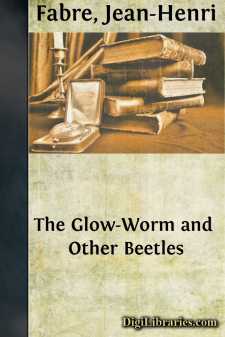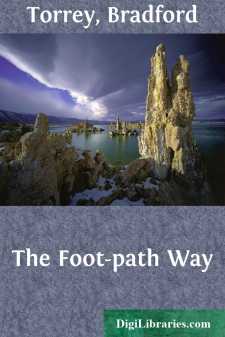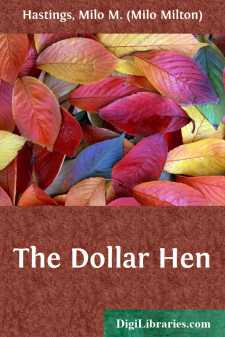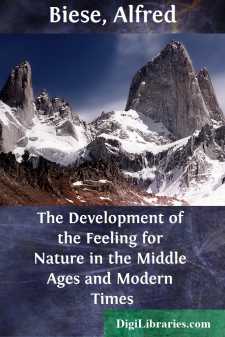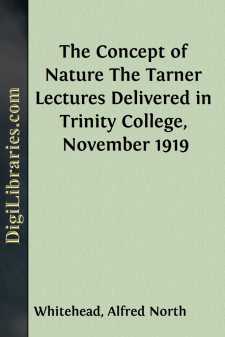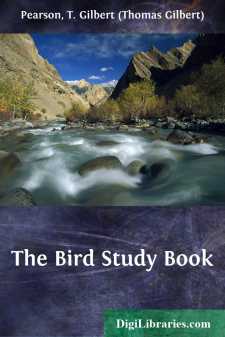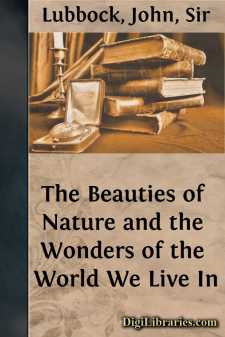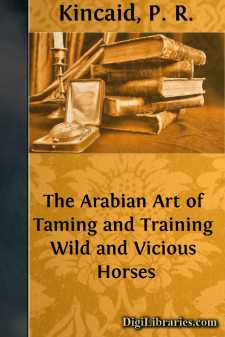Nature
Nature Books
Sort by:
by:
Jean-Henri Fabre
CHAPTER ITHE GLOW-WORM Few insects in our climes vie in popular fame with the Glow-worm, that curious little animal which, to celebrate the little joys of life, kindles a beacon at its tail-end. Who does not know it, at least by name? Who has not seen it roam amid the grass, like a spark fallen from the moon at its full? The Greeks of old called it [Greek: lampouris], meaning, the bright-tailed....
more...
by:
Bradford Torrey
We were neither "rapid" nor "gay," and it was still only the first week of June; if we were summer boarders, therefore, we must be of some unusual early-blooming variety. First came a lady, in excellent repute among the savants of Europe and America as an entomologist, but better known to the general public as a writer of stories. With her, as companion and assistant, was a doctor of...
more...
CHAPTER I IS THERE MONEY IN THE POULTRY BUSINESS? The chicken business is big. No one knows how big it is and no one can find out. The reason it is hard to find out is because so many people are engaged in it and because the chicken crop is sold, not once a year, but a hundred times a year. Statistics are guesses. True statistics are the sum of little guesses, but often figures published as statistics...
more...
by:
Alfred Biese
INTRODUCTION Nature in her ever-constant, ever-changing phases is indispensable to man, his whole existence depends upon her, and she influences him in manifold ways, in mind as well as body. The physical character of a country is reflected in its inhabitants; the one factor of climate alone gives a very different outlook to northerner and southerner. But whereas primitive man, to whom the darkness of...
more...
THE DISOBEDIENT WOODPECKER ONG, long ago, at the beginning of things, they say that the Lord made the world smooth and round like an apple. There were no hills nor mountains: nor were there any hollows or valleys to hold the seas and rivers, fountains and pools, which the world of men would need. It must, indeed, have been a stupid and ugly earth in those days, with no chance for swimming or sailing,...
more...
PREFACE The contents of this book were originally delivered at Trinity College in the autumn of 1919 as the inaugural course of Tarner lectures. The Tarner lectureship is an occasional office founded by the liberality of Mr Edward Tarner. The duty of each of the successive holders of the post will be to deliver a course on ‘the Philosophy of the Sciences and the Relations or Want of Relations between...
more...
CHAPTER I. Jenny Wren Arrives. Lipperty-lipperty-lip scampered Peter Rabbit behind the tumble-down stone wall along one side of the Old Orchard. It was early in the morning, very early in the morning. In fact, jolly, bright Mr. Sun had hardly begun his daily climb up in the blue, blue sky. It was nothing unusual for Peter to see jolly Mr. Sun get up in the morning. It would be more unusual for Peter...
more...
CHAPTER I It is in spring that wild birds make their strongest appeal to the human mind; in fact, the words "birds" and "spring" seem almost synonymous, so accustomed are we to associate one with the other. All the wild riotous singing, all the brave flashing of wings and tail, all the mad dashing in and out among the thickets or soaring upward above the tree-tops, are impelled by the...
more...
by:
John Lubbock
INTRODUCTION The world we live in is a fairyland of exquisite beauty, our very existence is a miracle in itself, and yet few of us enjoy as we might, and none as yet appreciate fully, the beauties and wonders which surround us. The greatest traveller cannot hope even in a long life to visit more than a very small part of our earth, and even of that which is under our very eyes how little we see! What...
more...
by:
P. R. Kincaid
Founded on the Leading Characteristics of the Horse. FIRST.—That he is so constituted by nature that he will not offer resistance to any demand made of him which he fully comprehends, if made in a way consistent with the laws of his nature. SECOND.—That he has no consciousness of his strength beyond his experience, and can be handled according to our will, without force. THIRD.—That we can, in...
more...


